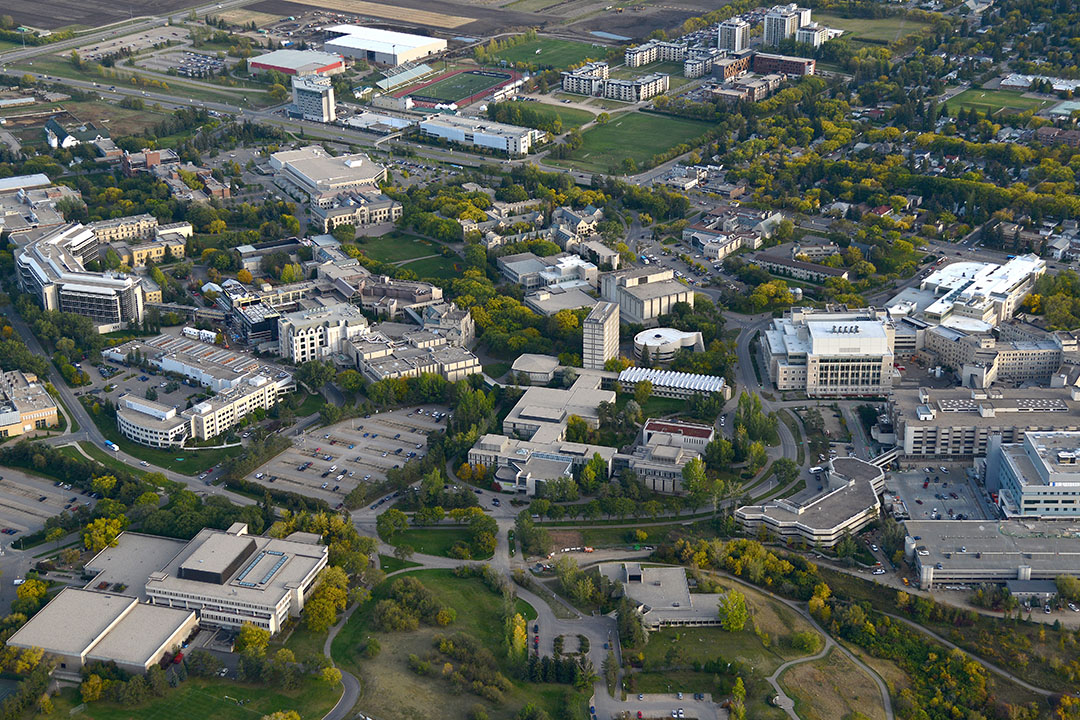
USask announces tuition plans for the 2020/21 academic year
The University of Saskatchewan (USask) is implementing a tuition freeze for 2020/21 for a majority of its programs due to the impacts of COVID-19 on students.
By University Communications“We know tuition is a significant investment for our students, and we hope that by maintaining tuition levels at their current 2019/20 rates in the majority of our programs for the upcoming year, current financial pressures felt by students and their families may be reduced,” said Anthony Vannelli, provost and vice-president academic.
Tuition recommendations, Vannelli explained, are informed by consultation with students and campus leaders, including deans and executive directors.
“Even as tuition rates remain unchanged, we remain focused on program and delivery enhancements to ensure that our students receive a rich and rigorous education that will set them up for success following graduation,” said Vannelli. “The method of program delivery—whether in-class, remote, or a blend of both—does not change the high quality and exceptional value of a USask degree.”
Every year, the tuition rates are presented to the Board of Governors prior to public release, guided by five principles: comparability to similar programs; accessibility and affordability for students, enabling the high quality of our programs; predictability of tuition to support longer-term planning for students; and transparency through consultation with students to ensure a common understanding on tuition.
“Tuition planning for the 2020/21 academic year was complicated by the current COVID-19 uncertainty, and today’s announcement comes after thorough review of the impacts of the pandemic on students,” said the provost.
To assist with affordability and accessibility USask provides over $70 million annually in financial aid, through scholarships, bursaries, and tuition credits. As further response to support students during the COVID-19 pandemic, we are investing $175,000 to support graduate students in assistantships, suspending late fees for tuition payments until August, and have made payments in excess of $925,000 to date from the Emergency Student Fund, a fund that will continue to support students in crisis. Students are our highest priority and we will work with them to ensure their needs, financial and otherwise, are supported.
International differential tuition multipliers—a common practice at most Canadian universities—will remain unchanged at 2.73 for undergraduates students and 1.58 for graduate students, and are projected to remain below most U15 comparators. Tuition rates for three colleges—College of Dentistry, College of Law, and Western College of Veterinary Medicine—will see tuition increases ranging from 3 to 15%.
“These tuition increases have been previously announced, and reflect the specific needs of these respective programs,” said Vannelli.
Students fees for 2020/21 are still under consideration, and will be announced at a later date. Students fees are assessed to maintain important services and supports, most of which continue to be used by students regardless of how classes are delivered. USask collects these fees on behalf of a variety of partners, including the USSU and GSA, and we are working with them to determine their services and fee levels for the upcoming year.
Moving to remote academic delivery for the final weeks of the Winter 2019/20 term and the current Spring and Summer terms, and building in contingencies to ensure Fall 2020 delivery meets all government health and safety directives have added significant cost pressures to the university.
Vannelli said that USask has made significant additional investments in student supports, course development, remote teaching technologies, safety equipment, and software licenses, while many revenue-generating units have halted operations due to the current campus closure.
“We continue to review its operations in light of these increased costs and revenue limitations,” he said. “This is an unprecedented time for members of our campus community, and the decisions we make help ensure USask programs, student supports, and teaching methodologies remain world-class, with some of the lowest tuition levels among Canadian U15 medical-doctoral universities.”
Article re-posted on .
View original article.

